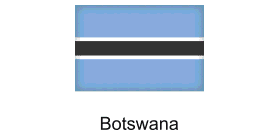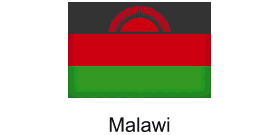Border Blockade! Tlokweng/Kopfontein Closure Hits African Travel Operators

The Tlokweng Border Post, identified as Kopfontein on the South African side, is scheduled for a temporary one-day closure on 24 September 2025. This significant event is anticipated to heavily impact the substantial volume of cross-border traffic between Botswana and South Africa. Located approximately 15 km east of Gaborone’s city centre, this critical crossing serves as a vital conduit for private vehicles, tourism, and commercial trucking routes connecting Gaborone with Zeerust, and further extending to Johannesburg and Pretoria.
The Botswana Unified Revenue Service (BURS) has cited operational challenges as the primary reason for this suspension of services, which will affect all categories of travellers, daily commuters, and cross-border trade. For the broader African travel sector, this temporary cessation of operations represents more than just a logistical hurdle; it underscores the critical necessity for flexibility and access to up-to-date information in effectively managing regional travel itineraries and complex supply chains. The Tlokweng/Kopfontein crossing is renowned as one of the busiest in the region, acting as a preferred entry and exit point for both leisure and business-related traffic. Consequently, its temporary shutdown will demand prompt and efficient adaptation from tour operators, travel planners, and logistics providers who depend on this route for the seamless movement of both people and goods.
During the period of closure, several alternative border posts will become crucial for maintaining connectivity between the two nations. Travellers and commercial entities are strongly advised to consider the following viable options:
Ramotswa Border Post (known as Swartkopfontein in South Africa): This crossing is situated southwest of Gaborone and is particularly well-suited for individuals and businesses travelling to or from Zeerust or Rustenburg. While it offers a practical detour for private vehicles and smaller commercial consignments, users should be prepared for potentially increased traffic volumes and subsequent delays as traffic is rerouted from Tlokweng.
Pioneer Gate Border Post (Skilpadshek in South Africa): Serving as the primary crossing along the Trans-Kalahari Highway (A2/N4), this option is the preferred route for long-distance and substantial commercial traffic, especially for those moving between Gaborone and major South African cities like Johannesburg and Pretoria. Its robust infrastructure and demonstrated capacity to manage high volumes make it a reliable alternative for freight services and scheduled coach operations.
Lobatse Border Post (Ramatlabama in South Africa): Positioned further south, this crossing is an excellent choice for those connecting to Mahikeng or seeking a route that is potentially less congested. It is well-suited for both private vehicles and commercial traffic, offering another practical solution for those impacted by the Tlokweng closure.
Given the anticipated surge in traffic at these alternative crossings, all travellers are strongly encouraged to meticulously plan their journeys. Allocating extra time for border formalities and potential congestion will be paramount, particularly for those operating under tight schedules or with critical onward connections. Operators are also advised to ensure that their clients and drivers are thoroughly briefed on the latest advisories issued by BURS and the South African Border Management Authority, as real-time updates could influence wait times and operational hours.
This temporary closure serves to highlight the ongoing challenges that border authorities face in balancing security requirements, operational efficiency, and critical infrastructure maintenance. For the African travel and logistics industries, it underscores the vital need for comprehensive contingency planning and the cultivation of strong, collaborative relationships with border officials and local partners. The ability to quickly pivot in response to such disruptions is progressively becoming a significant competitive advantage, especially as cross-border trade and tourism continue their robust rebound across the entire region.
For those within the hospitality and tourism sectors, this closure may also present a unique opportunity to demonstrate proactive customer service. Clear communication with guests, timely adjustments to transfer schedules, and offering informed alternative routing advice can significantly help to mitigate frustration and build enduring trust. Similarly, freight and logistics companies should coordinate closely with their clients to reschedule deliveries and effectively manage expectations regarding potential delays.
Looking forward, the temporary suspension of operations at Tlokweng/Kopfontein acts as a timely reminder of the dynamic nature inherent in African border management. As ongoing infrastructure investments and digitalization efforts continue to reshape the continent’s ports of entry, operators who remain well-informed and agile will be optimally positioned to capitalize on emerging opportunities and adeptly navigate inevitable challenges. In conclusion, while the closure of the Tlokweng/Kopfontein Border Post on 24 September 2025 will undoubtedly disrupt established travel and trade patterns for a single day, the readily available alternative crossings and the inherent resilience of Africa’s travel sector ensure that movement between Botswana and South Africa will persist with minimal long-term repercussions. By adopting a proactive planning approach and remaining vigilant for official updates, industry professionals can transform this temporary challenge into an opportunity to exemplify adaptability and service excellence within a rapidly evolving regional landscape.
Recommended Articles
Durban's Jewel: 18 Pristine Beaches Reopen, Prioritizing Visitor Safety and Water Quality!

Durban reinforces its status as a premier South African seaside destination with 18 beaches declared safe for swimming f...
Qatar's Controversial New Visa Rules Spark Outrage Among Nigerian Travelers

Qatar has introduced stringent new visa regulations for Nigerian travellers, primarily due to concerns over overstays. T...
Malawi's Passport Revolution: New Era of Secure Travel and Regional Mobility Unveiled

Malawi has successfully launched a new, ICAO-compliant passport system, ending years of frustration, delays, and corrupt...
You may also like...
U-20 World Cup Showdown: Flying Eagles Storm Santiago for Epic Argentina Clash!
)
Nigeria's Flying Eagles are set to face Argentina in a FIFA U-20 World Cup Round of 16 match on October 8, 2025. Argenti...
Anthony Joshua's Blockbuster Battle Plans: Fury Showdown Looms, 'Rumble in the Jungle II' Sparks Nigeria Fight Frenzy!

Anthony Joshua is being called to fight in Nigeria for a "Rumble in the Jungle II" in early 2026, fulfilling his dream t...
Rome's MIA Market Explodes with Hot Titles: 'Ancient China of Mars' & More Steal the Show

The MIA Market in Rome, running from October 6-10, is showcasing over 100 international projects across TV series, anima...
Timothée Chalamet's 'Marty Supreme' Wows NYFF: 'Career-Best' Performance Sparks Standing Ovation

Timothée Chalamet's “Marty Supreme,” directed by Josh Safdie, made a critically acclaimed surprise debut at the New York...
Zimbabwe Mourns: Kuwadzana Children's Funeral Unites Nation in Grief

A sombre joint funeral service was held in Harare for three children, Anenyasha Muzanago, Anopaishe Muzanago, and Reynol...
Charlotte Church's shocking new path: £25m fortune gone, embracing a dramatic career shift

Charlotte Church has dramatically transformed her life, moving from a multi-millionaire child star to operating a wellne...
Heartbreak for Sharon Osbourne as Jack reveals devastating update on grief for Ozzy

Sharon Osbourne is struggling intensely with the loss of her husband, Ozzy Osbourne, whose passing has left her world to...
Reality Royalty Crowned! Imisi Victorious in Big Brother Naija Season 10 Finale!

Imisi has been declared the winner of Big Brother Naija's 10/10 edition, securing N150 million, an SUV, and other prizes...